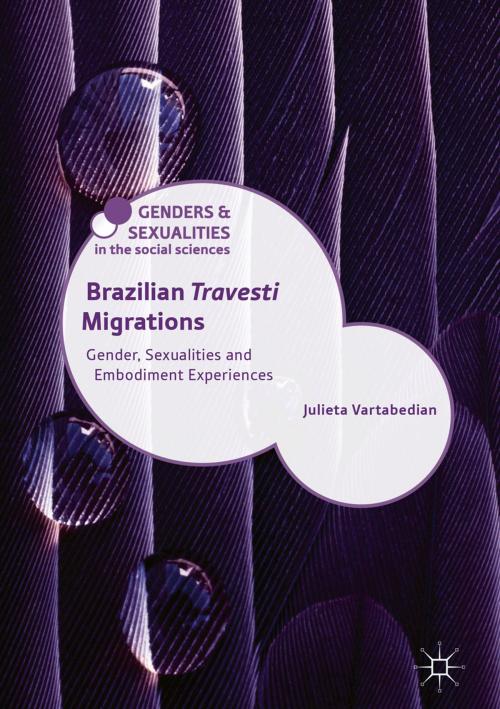Brazilian 'Travesti' Migrations
Gender, Sexualities and Embodiment Experiences
Nonfiction, Social & Cultural Studies, Social Science, Gender Studies, Sociology| Author: | Julieta Vartabedian | ISBN: | 9783319771014 |
| Publisher: | Springer International Publishing | Publication: | May 22, 2018 |
| Imprint: | Palgrave Macmillan | Language: | English |
| Author: | Julieta Vartabedian |
| ISBN: | 9783319771014 |
| Publisher: | Springer International Publishing |
| Publication: | May 22, 2018 |
| Imprint: | Palgrave Macmillan |
| Language: | English |
This book sheds new light on the interconnections between identity, gender and geographical displacement. At its centre are Brazilian travesti migrants, assigned as male at birth but later seeking to convey the aesthetic attributes of women by repeatedly performing a minutely-studied type of femininity. Despite the fact that they have been migrating between Brazil and Europe for more than forty years, very little is know about them, especially in the English-speaking world. This work therefore fills a significant lacuna in our understandings of sexualities, bodies and trans issues, whilst rejecting hegemonic terms such as 'transsexual' and 'transgender' in favour of the specificity of the travesti. What it presents is an ethnographical study of their bodily and geographic-spatial migrations, analysing how they become travestis through the gendered modification of their bodies, their involvement in sex work, and the transnational migrations to Europe that many of them make. Examining their lives in both Brazil and Europe, it also analyses how their migrations influence the construction of their subjectivities. Drawing on extensive fieldwork in Brazil and Barcelona, this exciting book will appeal to all those interested in gender, sexuality and transgender issues.
This book sheds new light on the interconnections between identity, gender and geographical displacement. At its centre are Brazilian travesti migrants, assigned as male at birth but later seeking to convey the aesthetic attributes of women by repeatedly performing a minutely-studied type of femininity. Despite the fact that they have been migrating between Brazil and Europe for more than forty years, very little is know about them, especially in the English-speaking world. This work therefore fills a significant lacuna in our understandings of sexualities, bodies and trans issues, whilst rejecting hegemonic terms such as 'transsexual' and 'transgender' in favour of the specificity of the travesti. What it presents is an ethnographical study of their bodily and geographic-spatial migrations, analysing how they become travestis through the gendered modification of their bodies, their involvement in sex work, and the transnational migrations to Europe that many of them make. Examining their lives in both Brazil and Europe, it also analyses how their migrations influence the construction of their subjectivities. Drawing on extensive fieldwork in Brazil and Barcelona, this exciting book will appeal to all those interested in gender, sexuality and transgender issues.















